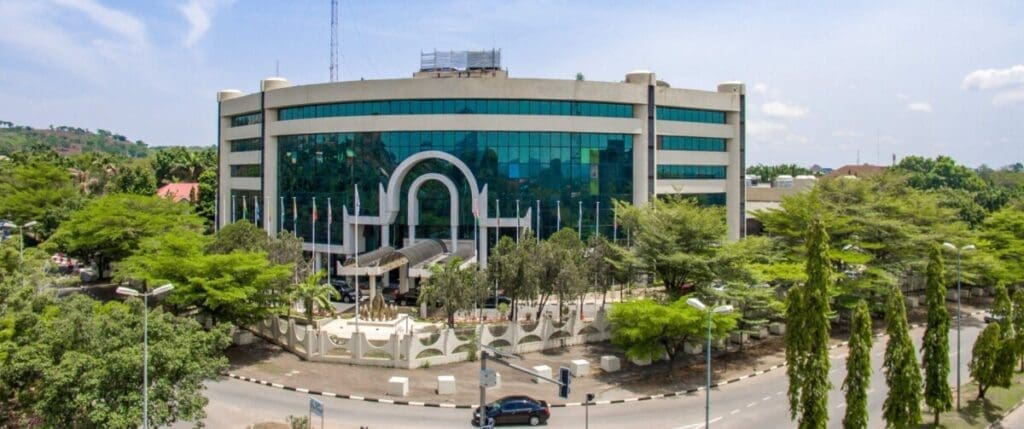Filing on behalf of AfricTivistes and Two Senegalese Journalists Seeks Interim Measures to Prevent Internet Shutdowns.
READ IN FRENCH
Dakar, February 13, 2024 – Media Defence and the Rule of Law Impact Lab at Stanford Law School have filed a lawsuit before the Community Court of Justice of the Economic Community of West African States (ECOWAS Court) challenging the Senegalese government’s shutdown of the Internet in June, July, and August of 2023. The case is brought on behalf of AfricTivistes, a pan-African civil society organisation registered in Senegal that seeks to protect democracy and human rights, and Senegalese journalists, Moussa Ngom and Ayoba Faye. The case argues that Senegal’s Internet restrictions breached the applicants’ right to freedom of expression as well as the journalists’ right to work, while significantly stifling media freedom and free expression in Senegal.
From 1 June until 8 June, 2023, in response to widespread demonstrations protesting the conviction of Senegalese opposition leader Ousmane Sonko, the Senegalese government implemented a comprehensive shutdown of major social media platforms. From 4 June to 7 June, mobile internet services were entirely suspended in various regions, leaving many, including the applicants, unable to connect to the Internet. In response to further protests against Sonko’s second arrest, the Senegalese government again restricted the Internet from 31 July to 7 August, limiting access daily from 8am to 2am. Although mobile data was eventually reinstated on 7 August, TikTok, which had been restricted on 2 August, remains inaccessible to date.
The lawsuit was filed on 31 January , 2024, shortly before President Macky Sall announced the postponement of the presidential election originally scheduled for 25 February. On 4 February, Senegal’s Minister of Communication announced new measures to restrict mobile Internet access for security reasons, though 97% of Internet users depend on it, according to a report by the Autorité de Régulation des Télécommunications et des Postes.
In Senegal, many rely on social media for news. During these critical political events, those who typically depend on the Internet for information were left in the dark. Moreover, amid the violent repression of some of the protests, blocking the Internet prevented the sharing of important details about safe areas and how to contact emergency services.
“AfricTivistes stands firm against internet shutdowns as they not only infringe upon the fundamental rights of citizens but also pose a direct threat to democracy and human rights. The case filed at the ECOWAS Court challenges Senegal’s actions, emphasising the detrimental impact on freedom of expression, media freedom, and the right to work. During political unrest, access to information is crucial, and internet shutdowns only worsens the situation, hindering the flow of vital news and endangering the safety of citizens. We believe in an open and connected Africa, where the right to express, share, and access information is safeguarded for the greater good of society,” said Cheikh Fall, president of AfricTivistes.
The case seeks interim measures to shield the Senegalese public from further shutdowns in advance of the presidential election scheduled for 25 February 2024, which has now been postponed. Internet shutdowns before and during the election period would prevent the sharing of information about candidates and the election to Senegalese voters. Internet shutdowns would also threaten the transparency and integrity of the elections by impacting the independent monitoring of polling station results, since citizen observers often share polling results on social media.
“Access to the Internet is a crucial aspect of the right to freedom of expression, and Senegal has an obligation to protect that right,” said Stanford Law School Professor, Amrit Singh, who is also Executive Director of the Rule of Law Impact Lab. She added: “We call on the ECOWAS court to hold the Senegalese government accountable for violating this right and to issue interim measures to ensure that there is no shutdown before and during the forthcoming elections.”
The ECOWAS Court has previously held that blanket internet shutdowns are unlawful in cases brought by Media Defence against Guinea and Togo. There is a growing trend globally of Internet shutdowns being used by states to limit opposition and disarm dissent. As in this case, these measures often coincide with critical political events, such as elections or protests. It is vital that measures – in line with international human rights standards – are taken to prevent further online restrictions to the free flow of information in Senegal.
The applicants are represented in this case by Djibril Welle, Padraig Hughes, Amrit Singh, and Mojirayo Ogunlana Oluwatoyin.
Recent News
World Press Freedom Day Side Event: Profiling and surveillance, a renewed challenge to freedom of expression
From May 2-4 2024, UNESCO and the government of Chile will host the 31st edition of World Press Freedom Day in Santiago. The global commemorative conference commemorates the vital role of journalism and information access in fostering a sustainable future that upholds diversity of voices. Media Defence is organising a side event at the conference […]
Landmark Ruling: Kenya’s High Court Declares Colonial-era Subversion Laws Unconstitutional
Media Defence welcomes the verdict of the High Court in Nakuru, striking down sections of the Kenyan Penal Code which criminalise subversion, citing them as relics of colonial oppression that curtail freedom of expression. Justice Samwel Mohochi, delivering the judgment, asserted that these provisions were overly broad and vague, stifling dissent rather than serving any […]
UN Rapporteurs Call for Protection of Brazilian Journalist Schirlei Alves
UN Rapporteurs Call for Protection of Brazilian Journalist Schirlei Alves Amid Defamation Charges Stemming from Rape Trial Coverage A letter dispatched by UN rapporteurs to the Brazilian Government calls for protective measures for women journalists covering cases of sexual crimes. The letter also denounces the conviction of Brazilian investigative journalist and women’s rights defender, Schirlei […]



